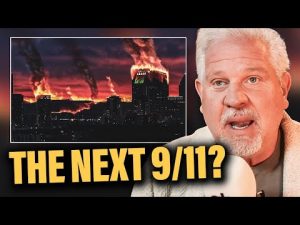In a disturbing turn of events, a peaceful rally in Colorado ended in chaos and violence as a man allegedly attacked participants with Molotov cocktails and a makeshift flamethrower. The gathering, known as “Run for Their Lives,” aimed to raise awareness about Israeli hostages held by Hamas. However, the event took a horrifying twist when a shirtless 45-year-old named Mohammed Solomon allegedly descended into a frenzied rage, shouting anti-Semitic slogans while assaulting peaceful marchers, some of whom were elderly.
Witnesses reported that Solomon, armed with his homemade weapons, launched firebombs into the crowd, creating panic among attendees. One woman was even seen in distress after being engulfed by flames, necessitating immediate assistance. Although the FBI quickly classified the attack as a targeted act of terrorism against Jewish individuals, local authorities seemed hesitant to label it as such, with Boulder Police Chief Steven Redfern suggesting it was too soon to speculate on the motive. This lack of clarity only added fuel to the fire of frustration among onlookers, many of whom felt the seriousness of the situation was being downplayed.
The incident has reignited discussions around the alarming rise of anti-Semitic attacks in the United States, particularly amidst a backdrop of heightened tensions and inflammatory rhetoric surrounding Israel and Palestine. Just prior to the rally, there had been several acts of violence that demonstrated an unsettling trend. For instance, a firebombing at the Pennsylvania governor’s mansion occurred due to his support for Israel, and a couple was tragically killed in Washington, D.C., in a separate incident that again highlighted the danger posed by extremist views.
Officials and commentators are pointing fingers at a broader cultural climate that appears to embolden anti-Semitic sentiments. Many believe that the atmosphere on college campuses, where anti-Israel displays have become increasingly aggressive and normalized, plays a significant role in inflaming these tensions. Graduation speeches, which should celebrate achievement and future prospects, have at times been co-opted into platforms for expressing grievances about Gaza instead.
Despite the ongoing investigations into Solomon’s actions, the reluctance of local officials to confront the issue head-on has raised eyebrows. Critics argue that denying the terrorist nature of such acts sends a dangerous message that downplays the severity of anti-Semitism. As communities grapple with the implications of this violence, the hope remains that society will come together to condemn these attacks and ensure that such incidents do not become the new normal. In the face of rising tensions, the call for unity and understanding is as crucial now as ever.







